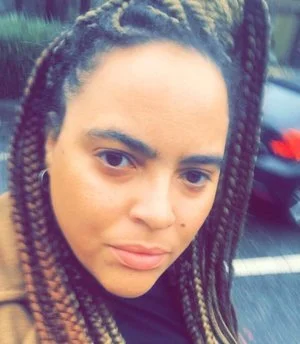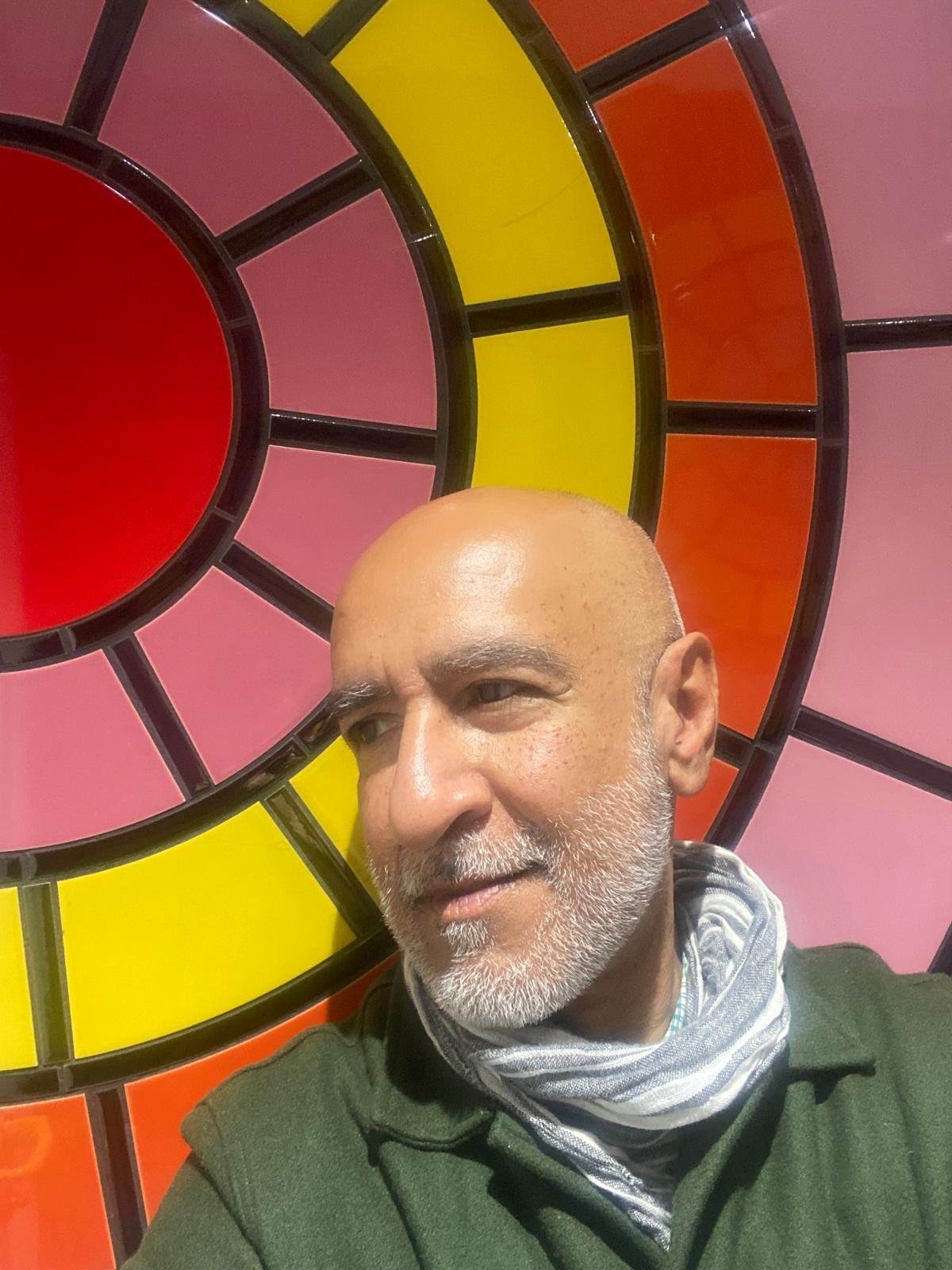This workshop is now sold out. Please make a booking to be added to the waiting list. You can also enroll in the May ‘22 program.
———-
Please Note: This workshop will be delivered online using Zoom. Participants will require a stable internet connection.
20% (£110 saving) discount when booking both this workshop & a Trauma Centre, Trauma Sensitive Yoga 20Hr Foundation Workshop
The body, yoga, mindfulness and neuroscience are themes that dominate contemporary conversations on trauma. These conversations often presume a prior level of expertise or else are so simplified that clinically significant distinctions are lost.
This 5 day workshop is intended to bridge the gap for those without a background in neuroscience or yoga but who wish to understand the current theories on what happens to our brains when we are threatened and how various yoga practices might either help or harm.
The workshop is suitable for:
those offering therapeutic interventions for trauma survivors
yoga teachers wishing to create a more trauma informed practice
those with little or no prior training in neurobiology
those without a yoga/somatic practice
Workshops FAQs document - Please follow this link. It will hopefully answer all your questions re. the workshops.
The Yoga Clinic (UK) does not consider those living with the effects of a trauma history, pathologically 'disordered'.
Please note: This program is solely for professional development and is not intended as an intervention for those who have experienced trauma. Talking about trauma, even in the context of an educational program, may be triggering.
Curriculum Overview:
Introduction to Neuroscience & Neurobiology:
The neurological processes by which we come to know and respond to our internal and external world
Interpersonal Safety & Interpersonal Neurobiology:
The neurological processes through which safety is created and experienced
The Effects of Safety - Thriving, Not Just Surviving:
The effects of safety on our cognitive, emotional and biological states
Interpersonal Danger & Interpersonal Neurobiology:
Varieties of danger - interpersonal and non-personal, abuse and neglect, chronic and single incident
The neurological processes through which danger is created and experienced
Surviving Danger:
Fight, Flight, Fawn, Freeze & Dissociation
The neurobiology of our survival mechanisms
The Side Effects of Surviving - Not Thriving:
Neurobiological theories for Post Traumatic Stress Disorder, Complex PTSD, Developmental Trauma, Dissociative Identity Disorders and Personality Disorders
Trauma Sequelae:
Neurobiological theories for the varieties of secondary trauma symptoms, including addiction, self-injurious behaviours, somatisation, foggy thinking and attentional issues, insomnia, sexual dysfunction, autoimmune disorders
Trauma Informed Practices:
Locating distress/locating blame - "what happened to you?" Vs "what is wrong with you?"
Attending to power dynamics and enabling agency
The Spectrum of Trauma Treatments:
Cognitive approaches to trauma processing - limitations and applications
Somatic approaches to trauma processing - limitations and applications
Psychoeducation
Yoga - A Relational Practice for a Relational Brain:
The 8 Limbs of Yoga (Ashtanga Yoga) as a psychological practice
Contemporary yoga and secular mindfulness
Yoga and Re-Traumatisation:
Yamas, Niyamas & moral judgement
Asana, Pranayama and physical assists
Meditation and dissociation
Ahimsa/The Hippocratic Oath, Scope of Practice
Yoga for Trauma Survivors:
Trauma Sensitive Yoga - somatic dissociation and embodiment
Trauma Informed Yoga - mindfulness, affect regulation, empowerment
Self-practice and group practices
General yoga classes for trauma survivors
Theoretical Frameworks:
Polyvagal Theory
Attachment Theory
Interpersonal Neurobiology
Classical and Operant Conditioning
Neuroplasticity
Cognitive Neuroscience
The Yoga Sutras
This workshop will be delivered online using Zoom. You will require a stable internet connection.
We will make use of a number of teaching mediums:
Additional pre-recorded content
Seminar style with accompanying slides and handouts
Case histories & lived experience
Teaching examples
Clinical examples
Small and large group brainstorming/discussion - Zoom breakout rooms
Experiential Education - some craft materials will be required; details will be sent out to participants
Teaching Practice - Zoom breakout rooms
Q & A sessions
Expert by Experience/Training, Panel Discussion (as part of an ongoing conversation that is The Critical Yoga Project)
Expert by Experience/Training, Panel Discussion
Friday afternoon - an opportunity for students and the panel to share insights and experiences.
Panel - Ulanah Morris, Charmaine Harris, Geneviève Grant & Mehboob Dada
Ulanah Morris works with The Recovery College, Camden and Islington NHS Trust as a Professional and Peer Recovery Tutor.
“I am responsible for facilitating and co-producing person-centred experiential workshops with vulnerable adults who are on a mental and physical health recovery journey. I also have a private practice as a Mindfulness Facilitator, Spiritual counsellor, Interfaith Minister and Celebrant.
My professional and educational background is in Psychology and Education, Holistic Therapy and Art Therapy (including Breath-work and Rebirthing) and Spiritual Counselling and Mindfulness Based Addiction Recovery Training.
Yoga and meditation has been part of my life for many years since I encountered it at 15 years old. I now have a consistent, daily practice of Kundalini Yoga.
Over the years intensive practice has taken me through numerous upheavals and significant moments. The calm, grounded-ness, increased sense of lightness as my consciousness expanded was profound and life-enhancing. Yoga has been a source of peace, healing, empowerment, courage, strength and resilience, and has supported my journey through a world which can be unequal and unjust.
All roads have always led back to Yoga and body-work. Somatic practices have been a deeply transformative tool for support and healing through the traumatic experience of entering the UK as an immigrant and living here as a Black child and woman.
Through Yoga I’ve been enabled to bring courage, calm, compassion and equanimity to the service of my work with vulnerable adults and children with complex needs. I’ve been able to support numerous groups and individuals in realising themselves, finding Light within darkness and living with Hope and a sense of possibility.”
Charmaine Harris is the clinical Lead for Peer Support in West London NHS Trust and an Open Dialogue Trainer for East London NHS Foundation Trust where she is also the operational lead for the SUN project.
In addition she is an Open Dialogue Specialist Practitioner for the recent ODDESSI research study.
Charmaine works as a Mental Health Service Lead at One Place East and tutors on the 4 week residential Peer Supported Open Dialogue (POD) UK training.
Charmaine is the founder of Peer Dialogue; Peer Dialogue addresses crisis needs for people who experience trauma from traditional forms of mental health care provision. It trains Peer Workers and community members in relational recovery, understanding personal narratives of distress; to co-facilitate community user led crisis groups.
Geneviève Grant has over 15 years experience devising and delivering bespoke coaching. Her client’s are often global companies with an aggressive financial strategy - Goldman Sachs, J. P. Morgan, Barclays Banking Group.
Geneviève’s clients look to her for ways to support and develop a competitive, resilient & adaptable company culture that is also respectful and engaged with the international profile of their workforce.
Prior to becoming a trainer and coach, Geneviève has been and continues to be performance poet, dramaturg, stage-manager and massage therapist. She draws on these experiences to enrich and deepen her coaching process.
Mehboob Dada is a BACP Registered and Accredited Counsellor and Psychotherapist. Mehboob has a BSC(Hons), PGCE and an MA in Health Promotion, Education and International Development from Goldsmiths and the Institute of Education, University of London. As well as the Diploma in Counselling, Mehboob holds a Foundation in Group Analysis and a Diploma in Group Analytical Supervision.
Mehboob has been working with vulnerable individuals affected by drug use, asylum seekers and traumatized individuals. Identity and belonging are areas of personal interest for Mehboob, who has worked internationally with the European Union, UNESCO, the NHS and third sector organizations.
A skilled group conductor, Mehboob has since 2016 has been facilitating a reflective group for the Black, Asian and African Therapy Network (BAATN). In private practice Mehboob provides short and long-term therapy, as well as supervise trainee therapists and counsellors. Mehboob also runs closed therapy groups. Mehboob has a practice that respects working with diverse ethnicities, sexualities, and belief systems. Mehboob was born in Uganda with Indian ancestry and sought asylum in the UK in 1970. Mehboob has lived in New Delhi for 3.5 years, Paris for 15 years and London for most of his life.
Possible topics:
the experience of mental health service users/service providers, particularly within the NHS
the experience of those with varieties of trauma backgrounds
the experience of those that are from non-white communities/racism as relational trauma
the experience of those that are from non-heterosexual communities/homophobia as relational trauma
trauma informed approaches to chronic and enduring poor mental health including the Open Dialogue approach to psychosis
the role of somatic approaches to mental health & their place in trauma informed care
This panel will be part of an ongoing conversation that is The Critical Yoga Project
Accreditation & Professional Development:
Letter of Attendance :
The Yoga Clinic (UK)
Delivered by Alexandra Cat, Director, The Yoga Clinic (UK)
This workshop together with the 4.5Hr E-Course in Trauma Sensitive Yoga satisfies the application requirements for The Centre for Trauma & Embodiment's certification program in TCTSY
Alexandra Cat holds degrees in Experimental Psychology, (Oxford University) and Philosophy of Cognitive Science (Sussex University).
She is a member of the teaching faculty for The Centre for Trauma & Embodiment (Boston, USA) program in Trauma Sensitive Yoga and is a regular guest lecturer on a variety of NHS Medical Education Programs.
Alex has worked as a yoga teacher since 2001. She offers trauma informed yoga practices for trauma survivors - The Yoga Clinic (UK).
Please see here for Alex's full resume.
TIMETABLE DETAILS
Each day will run from 10:00 - 16:30, including a mid morning, lunch and mid afternoon break
Students will be booking for the whole 5 days.
Booking Details
Non-Bursary Places:
There are 3 booking options.
UK Bookings - £550
UK Bookings when also booking a 20Hr TCTSY workshop - £440
International Bookings - £560*
*International students are asked to pay an extra £10 to cover a currency processing fee.
Bursary Places: Applications for bursaries have now closed.
Six bursary places are available.
2 x £250 places reserved for those who identify as LGBTQI
2 x £250 places reserved for those identifying as Black, Asian, Minority Ethnic
2 x £100 places reserved for those employed as Peer Workers within mental health services
These places are for people who fulfil the following criteria:
LGBTQI and/or Black, Asian, Ethnic Minority and/or those employed as Peer Workers within mental health services - please do not submit a bursary application if your identity does not meet this initial criteria
residing in the UK
making your payment from a sterling (£) account.
would not otherwise be able to afford to attend the workshop - priority is given to those in receipt of benefits and/or peer workers
Applications for a bursary place must be submitted by Saturday October 23rd 2021.
Successful applicants will be notified of their offer by Saturday October 30th 2021. Offers will be made to eligible candidates on a first come, first served basis.
Please Note: I am aware that acronyms centering heterosexuality &/or whiteness, and which reduce individuals to collective labels are problematic. I am in conversation/reflection around this subject - Alex Cat.
Payment Plans:
Payment plans for UK & bursary places will be available. Because each instalment will incur an international processing fee, we do not offer a payment plan for non-sterling (£) accounts
Please note: The Yoga Clinic (UK) does not consider those living with the effects of a trauma history, pathologically 'disordered'.
This program is solely for professional development and is not intended as an intervention for those who have experienced trauma. Talking about trauma, even in the context of an educational program, may be triggering.



